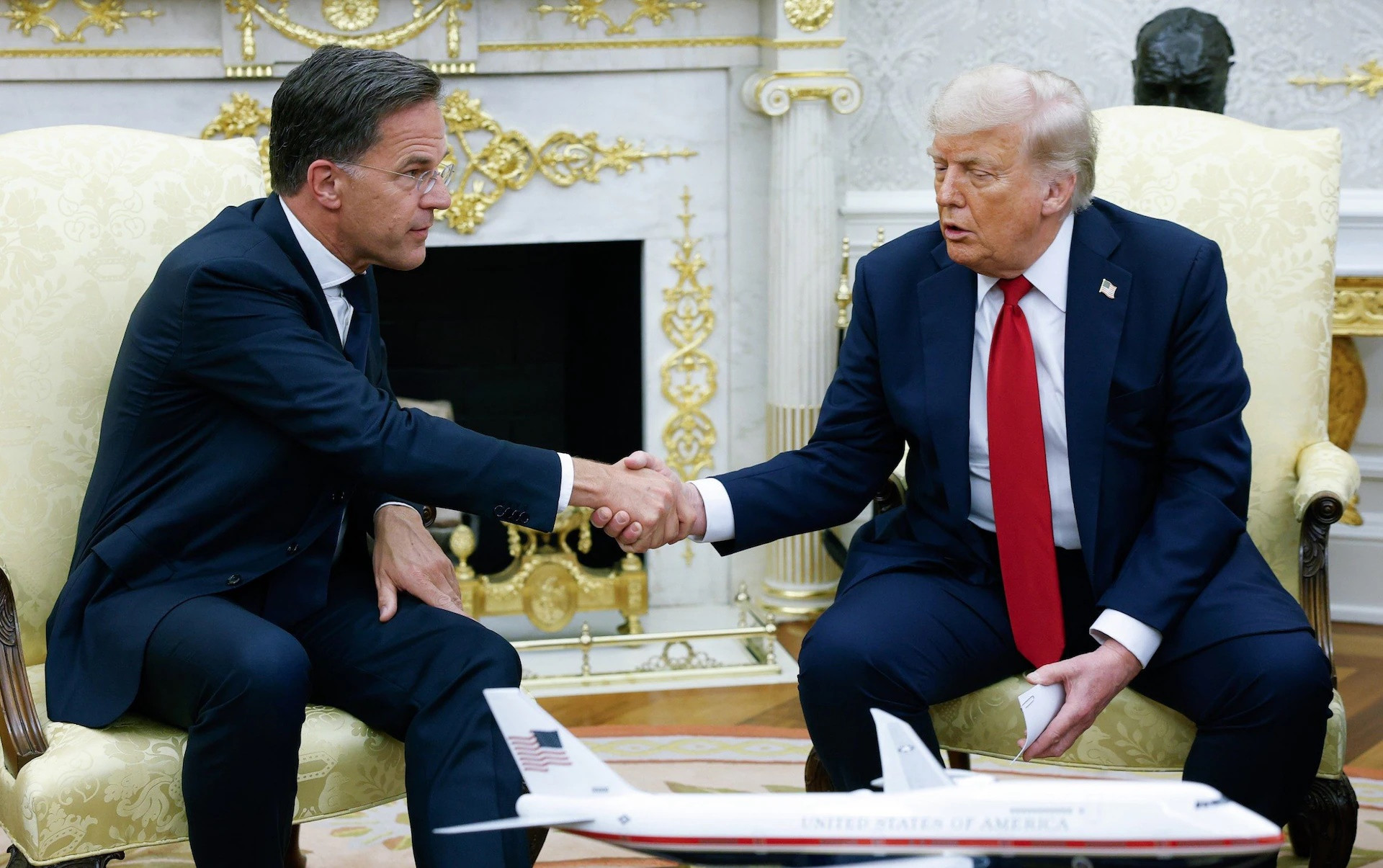France and Italy Refuse to Join Trump’s Ukraine Weapons Fund
At least eight countries have expressed interest in participating in US ‘arms pipeline’, Nato sources claim
France and Italy have refused to participate in Donald Trump’s plan to send US-made weapons to Ukraine.
Governments across Europe are pondering whether to take part in the $10bn initiative. It will involve Ukraine’s allies on the continent, along with Canada, buying “top of the range” weapons – including Patriot air defence systems – from Washington before giving them to Kyiv.
But without the release of key details, some countries have yet to make a decision on whether to join the scheme, which was presented by Mr Trump and Mark Rutte, the Nato secretary general, in the Oval Office on Monday.
France has told allies it will not join the initiative, according to officials briefed on the discussions.
Patriot air defence systems are a key part of the proposals unveiled by Donald Trump and Mark Rutte this week
Paris is currently wrangling over its domestic budget and demands to boost its defence spending while navigating concerns over the country’s growing debt pile.
Emmanuel Macron has always favoured arming Ukraine with locally produced weapons to boost the EU’s own industrial base and make the bloc less reliant on Washington for its defence.
Emmanuel Macron, the French president, pictured with Gen Thierry Burkhard, the country’s chief of defence staff, has long favoured supplying Ukraine with EU-produced equipment
The Italian government has said it will not purchase weapons but could help with the logistics of transporting them to Ukraine, Italian media reported.
“Here there has never been talk of buying American weapons,” the source quoted by the La Stampa newspaper said.
While the Czech Republic has not officially ruled itself out of the US initiative, its foreign minister told The Telegraph that “no decisions” had been taken on whether to join.
Jan Lipavský said: “We are already participating in so many mechanisms that there is currently no discussion of new resources. But I cannot say it won’t change because it’s really too soon.”
Prague already manages a coalition of 12 countries that contribute money to a pot to buy artillery shells for Ukraine. Last year, it donated around 1.5 million rounds to Kyiv’s troops and it is planned to deliver more in 2025.
There are dozens of similar programmes delivering everything from drones to fighter jets, which could make participation in a new scheme difficult for some countries.
But Nato officials say at least eight countries have shown interest in joining the Trump-led pipeline.
They will either contribute cash or donate their existing US-made equipment to Ukraine before being fast-tracked replacements by Washington.
Friedrich Merz, the German chancellor, who has been a driving force for the plans to arm Ukraine, welcomed Volodymyr Zelensky, the country’s president, with full military honours in Berlin in May
Germany is believed to be the nation most invested in the scheme. Friedrich Merz, its chancellor, proposed buying Patriot air defence batteries for Ukraine in a deal with the US president.
Mr Rutte said the scheme would also involve missiles and other forms of ammunition being purchased from the Americans.
British sources have told The Telegraph that they support the programme, but have not taken a decision on how to contribute with details yet to be shared with allies.
Finland, Sweden, Denmark, Norway, Canada, and the Netherlands were also named as possible participants.
Each of the countries’ armed forces already operate US-manufactured equipment, from Patriots to fighter jets.
It is understood that any money poured into the scheme will count towards Nato allies’ new defence spending goal of 3.5 per cent, making it an attractive proposition for governments struggling to find money to reach the target.
Source: https://www.telegraph.co.uk/wo....rld-news/2025/07/16/















